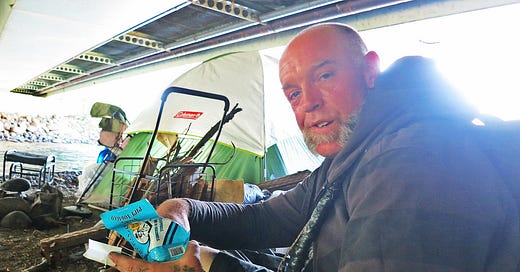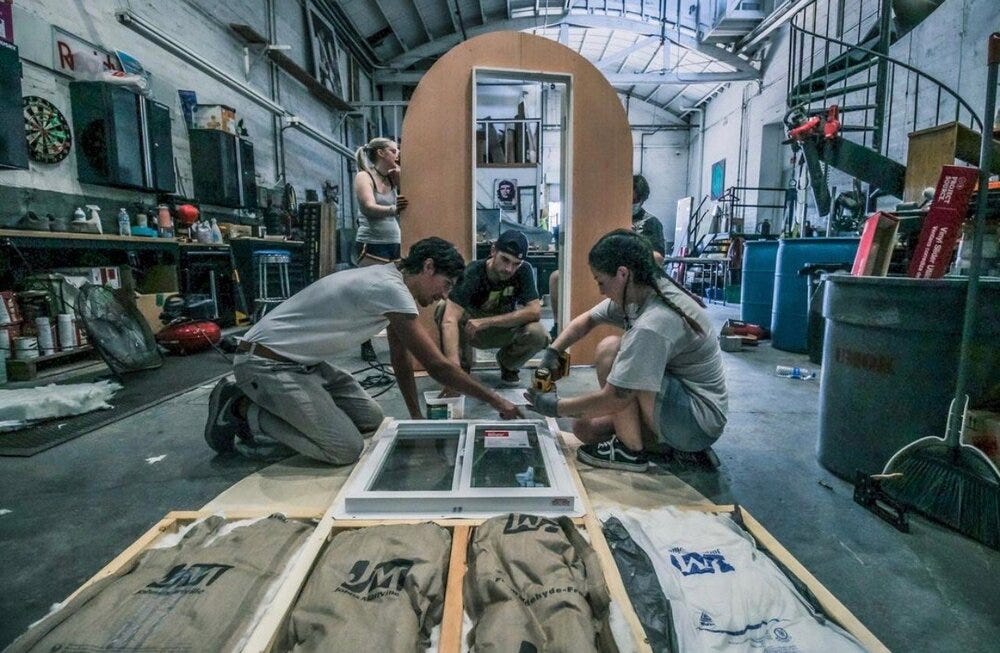Of Substacks, Jacobs Entertainment and a Fallen Giant from the streets of Reno
The latest Reno City Council meeting this week was marked by the unanimous approval minus Jenny Brekhus to sell two city parcels to Jacobs Entertainment for a little over $3 million, which was more or less the appraised value, even if a city official admitted one of the appraisals was “slightly stale.”
Interestingly, during discussions, at-large councilman Devon Reese made a pointed critique of information surfaced days before by the Barber Brief Substack, a widely shared publication by historian, author and city critic Alicia Barber.
“The problem I think happens when people with their own blogs and Substacks then see the item and then think the outcome is predetermined, which it is never,” Reese said. “It also creates a distraction, right, because people think that a certain thing is set to happen and they are upset about it and understandably so, because in this specific case, there was a general, I would say, concern within the community that somehow we were going to give community-owned assets away for nothing.”
He said this was not reflective of how the process works. “I think that is also dangerous,” Reese said. “Don’t believe everything you read on the Internet or on someone’s Substack. That is not the way that ultimately policy is made.”
Barber had raised the alarm that as she explained commenting on a post on Our Town Reno, “Jacobs proposed buying both for a combined total of $50,000 back in April when they first pitched their proposed Development Agreement (which is yet to return).” As we pointed out on Twitter, what if the Substack in fact helped with the negotiations for the city to get more money from Jacobs Entertainment? Still pending is the confusing attempt for Jacobs Entertainment to get Tax Increment Financing (TIF) for its massive project, of which we have seen purchases, bulldozing, the disappearance of motels, fenced off dirt lots, green lighting, tacky art, but still little else, despite booming construction by other developers throughout the city.
This week, we also bowed our heads and paid our respects to Fuzz Norton (above), who we had met several times and who was a giant on the streets of Reno. The first time we met him he explained his philosophy of helping others struggling in encampments. The last time we wrote about him, he was recovering from an earlier stroke, and gave a prescient overview of where Reno was headed in terms of helping the unhoused.
“We’re not trying to harm anybody. We really aren’t. We are not inflicting anything upon anyone else. We are just trying to get over our woes,” he said as he gingerly grabbed his cane on that day we interviewed him four years ago.
Friends from his rich life have flooded his Facebook with the nicest comments, hoping to meet again, somewhere, somehow, as we wish to as well.
Our podcast episode this week is from our archives, an audio history mini documentary about the start of the pandemic and how it affected the unhoused in our community. COVID-19 basically marked the end of the Record Street shelter as the city’s main shelter, a decline which seemingly started, at least in terms of officialdom, in March 2019 when a man was discovered dead on the roof several days after his passing.
"The current situation of homelessness has definitely outgrown the capacity of the shelter and puts people at risk," Pat Cashell said at the time. Cashell, who remains the regional director of Volunteers of America, heading operations of the Nevada Cares Campus, had previously given much more flattering accounts of the Record Street shelter to media and city council meetings.
With the pandemic and new federal money flowing in, the cards were quickly reshuffled, and now the campus is this area’s emergency mega shelter.
For those, who still believe such a place is inadequate for many, we wrote about some of our neighbors to the south working on establishing cheaply built Conestoga Huts on trailers with DMV registrations, after an initial attempt to establish an urban village of huts ended in a raid.
“A lot of people were into this idea and it just takes time, and the right opportunity for something to grow,” Majors said of his strategy. “We're a strong community and there's a lot of innovative ideas coming out still, so that's good.” Majors said he was also willing to help anyone in Reno trying to do the same, so if anyone wants his contact let us know.






